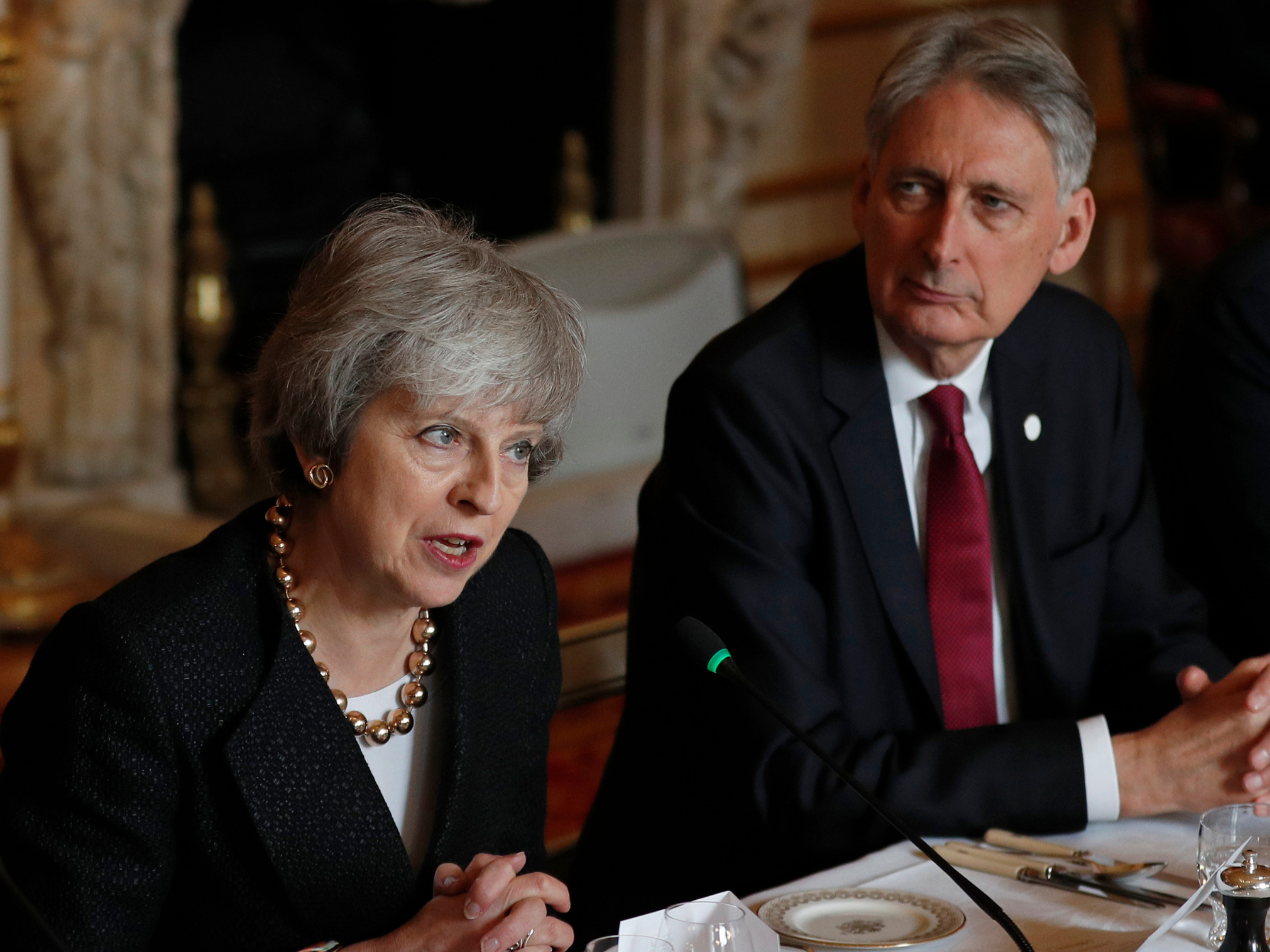Theresa May defends committing government to spending billions during final weeks in office
Philip Hammond asserts he will resign if PM threatens his prudent economic record with ‘vanity projects’

Your support helps us to tell the story
From reproductive rights to climate change to Big Tech, The Independent is on the ground when the story is developing. Whether it's investigating the financials of Elon Musk's pro-Trump PAC or producing our latest documentary, 'The A Word', which shines a light on the American women fighting for reproductive rights, we know how important it is to parse out the facts from the messaging.
At such a critical moment in US history, we need reporters on the ground. Your donation allows us to keep sending journalists to speak to both sides of the story.
The Independent is trusted by Americans across the entire political spectrum. And unlike many other quality news outlets, we choose not to lock Americans out of our reporting and analysis with paywalls. We believe quality journalism should be available to everyone, paid for by those who can afford it.
Your support makes all the difference.Theresa May has defended her decision to commit the government to billions of pounds of spending in her final weeks in office.
The weeks since Ms May announced she would stand down have been marked by a flurry of initiatives on issues ranging from climate change to mental health and housebuilding, as the prime minister seeks to forge a legacy that goes beyond her failure to deliver Brexit.
The spending spree has met fierce resistance from the Treasury, where Philip Hammond has let it be known that he is ready to resign if prime ministerial “vanity projects” threaten his record of prudence on the economy.
The chancellor has built up a war chest of more than £26bn “headroom” in the public accounts to cushion the impact of a no-deal Brexit, and does not want the cash to be raided until it is certain that the UK’s withdrawal from the EU will be orderly.
Some at Westminster accuse the PM of seeking to tie the hands of her successor by launching projects which will have to be implemented long after she is gone.
Some are relatively inexpensive, like a call for better planning to provide more spacious homes and a plan for every new teacher in England to be trained to spot mental health problems.
But Mr Hammond is understood to have warned that the long-term cost of the target to reach net zero carbon emissions by 2050 could reach £1 trillion.
And his resistance to Ms May’s plan to spend £27bn over three years on new schools and pay rises for teachers is thought to have led to a dramatic scaling back to a £9bn one-year scheme now expected to be announced.
Speaking at the G20 summit in Japan, Ms May defended her decision to keep making plans in the weeks leading up to the handover of power to Boris Johnson or Jeremy Hunt on 24 July.
“Look, government is continuing,” she said. “I’ve still got work to do as prime minister until I hand over to my successor.
“And I think it’s important that we continue to take decisions that are right decisions for this country. Net zero being a very good example of that.”
Ms May was accompanied on her flight to Japan by Mr Hammond as well as her husband Philip.
Asked if she was pleased to have company on her final outing on the global stage, she replied: “I’m absolutely delighted that Philip is with me.”
The inevitable chorus of “Which one?” from the travelling journalists was greeted with an awkward silence.
Join our commenting forum
Join thought-provoking conversations, follow other Independent readers and see their replies
Comments